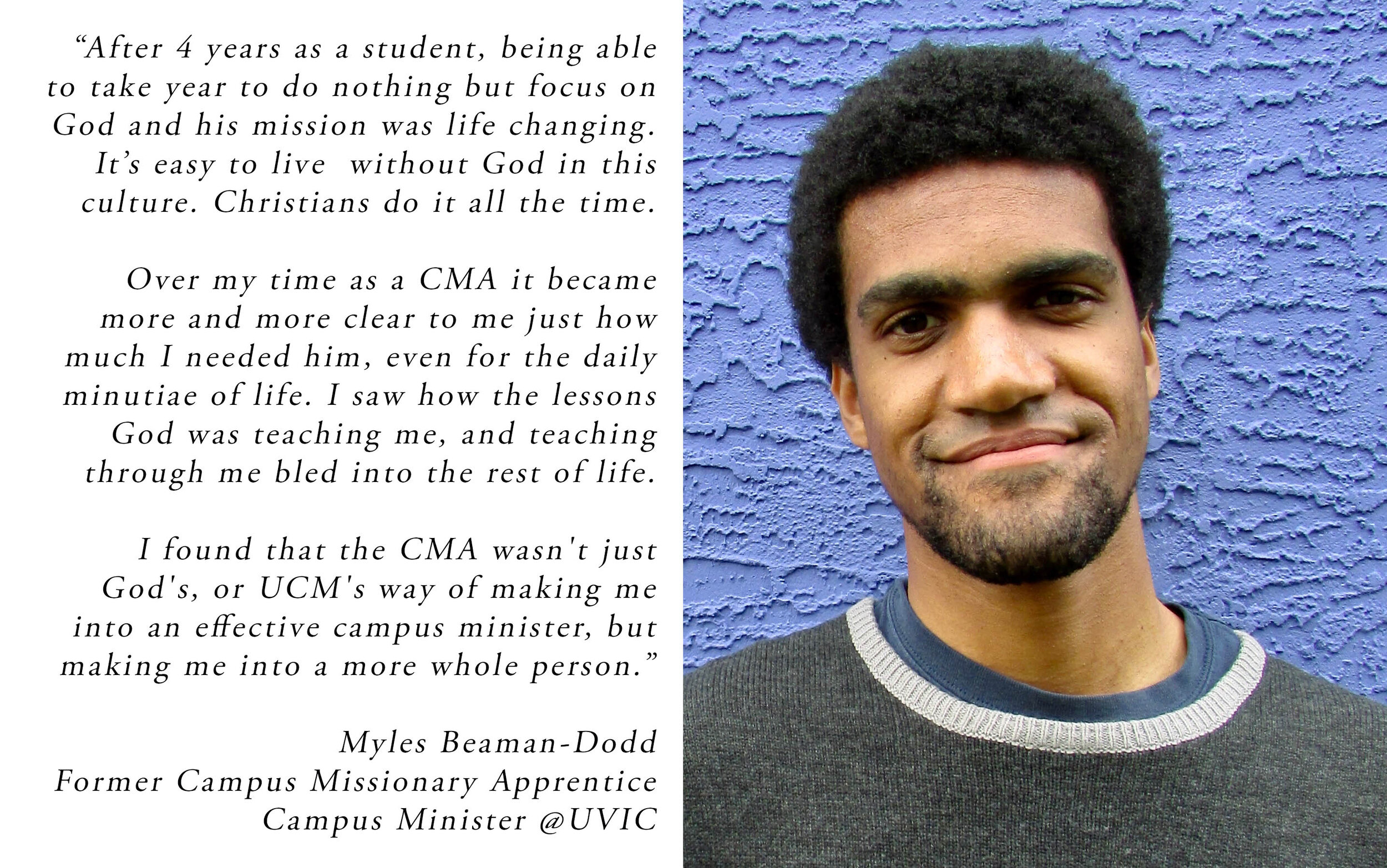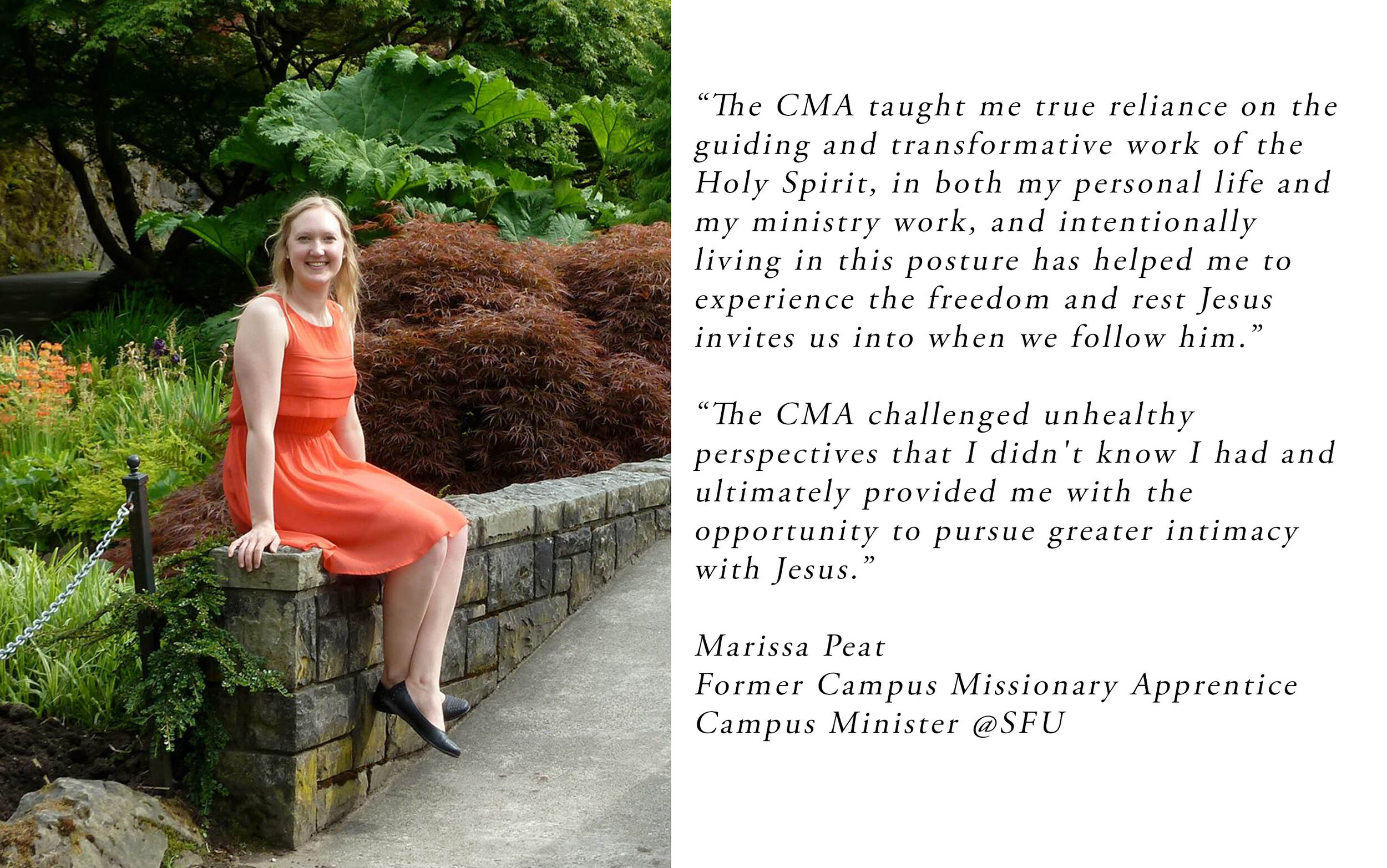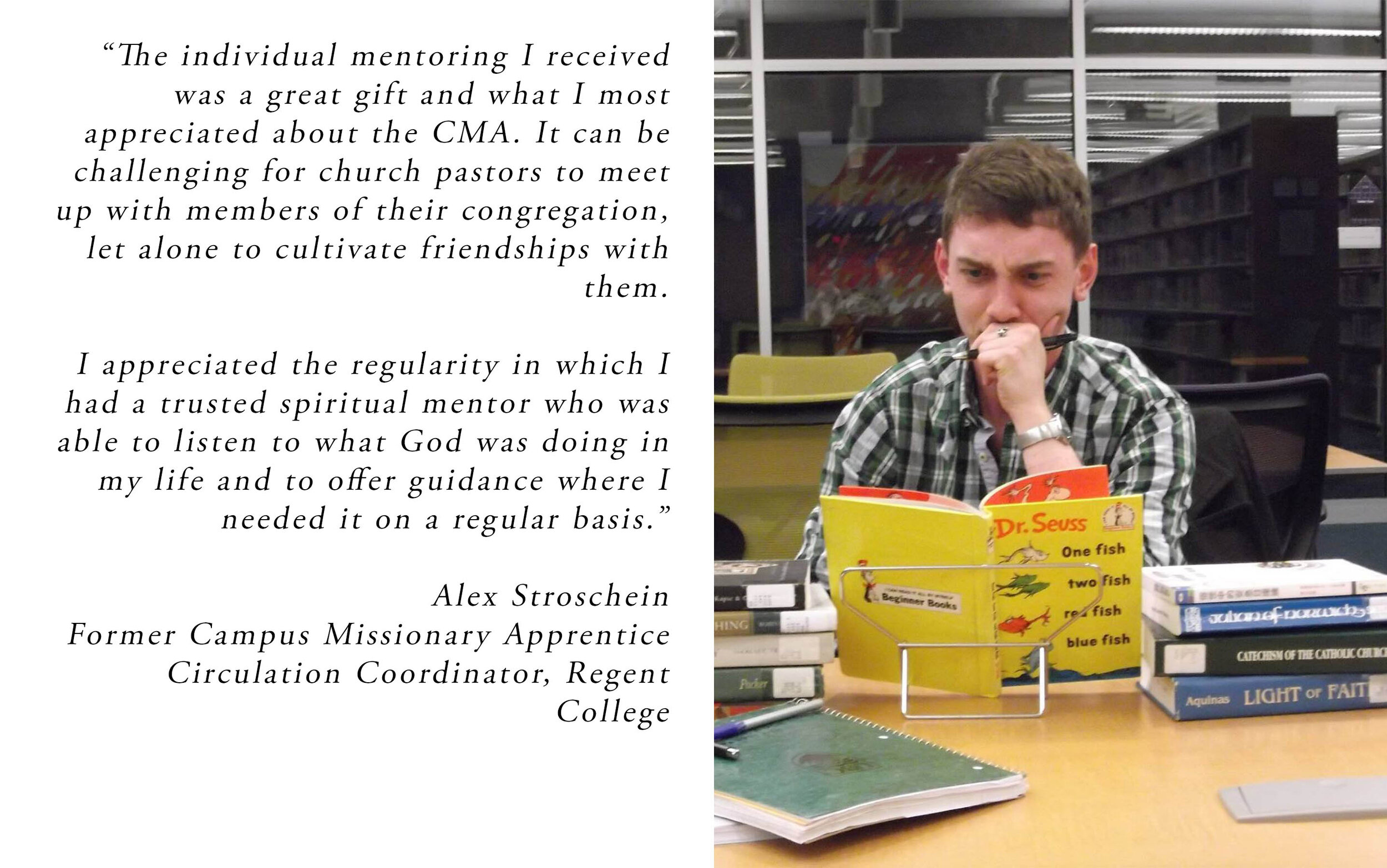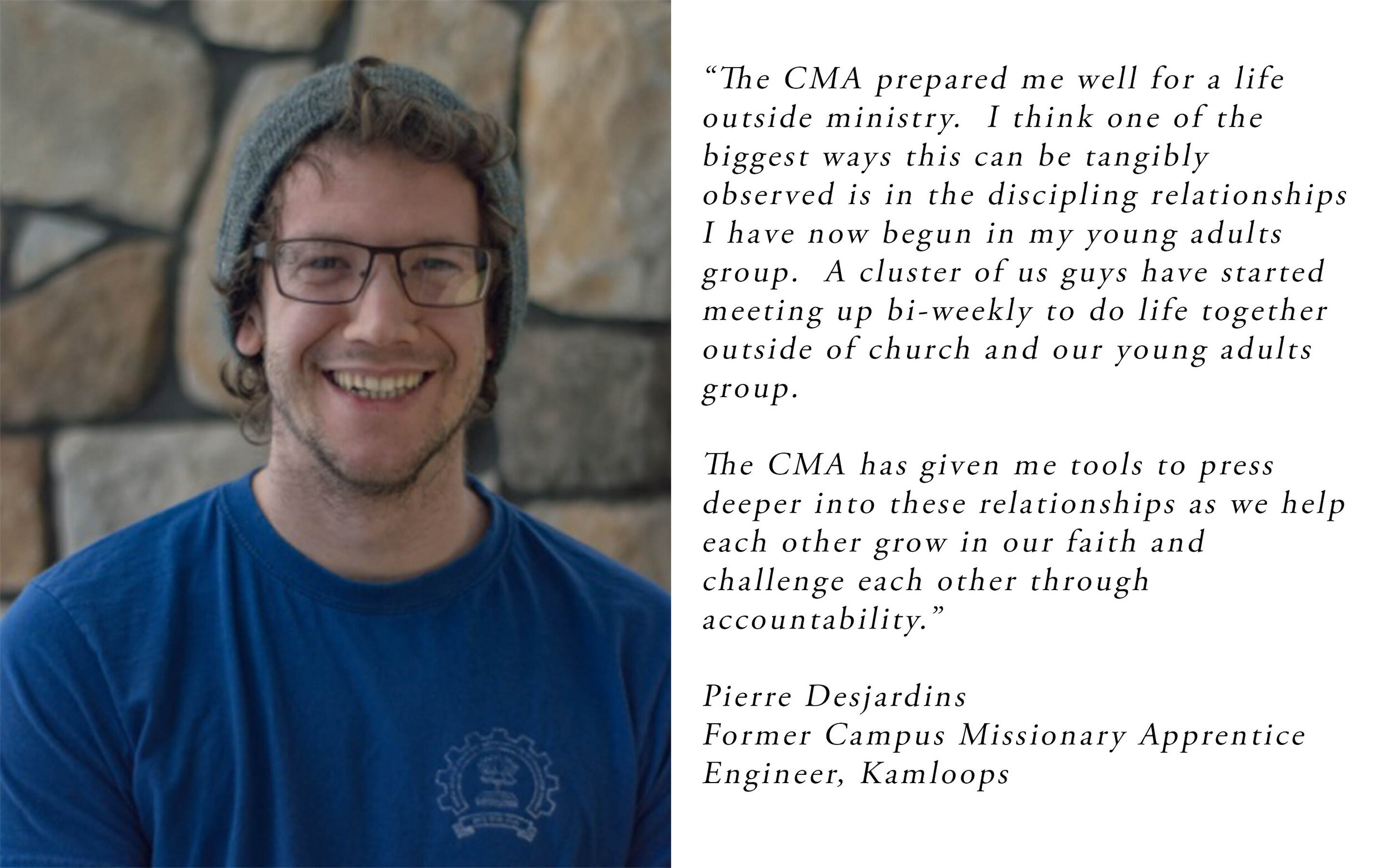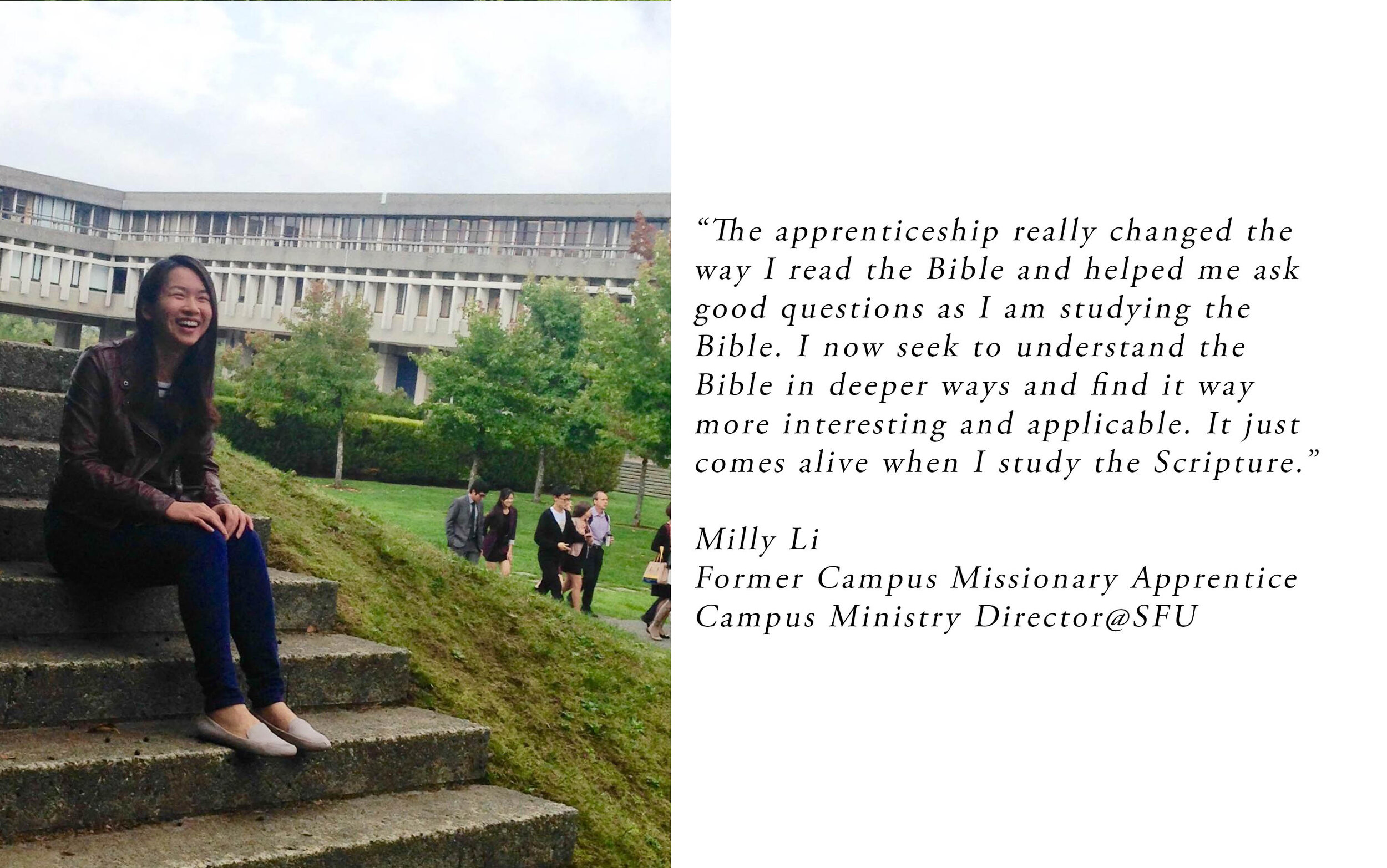The deadline for submitting an application is Friday, January 31, 2025.
He appointed twelve, that they might be with him . . .
- Mark 3:14
If you look at Jesus and his disciples you’ll notice that all their ministry training happened because they were with him. At UCM we believe that pastoral training is ideal when it happens in an apprenticeship model— where formal instruction is combined with informal training from those with experience.
UCM’s Campus Ministry Apprenticeship (CMA) is a full time, fundraised program that provides training for campus missionaries. Theological training, spiritual formation, and ministry skills are taught while ministering on campus as part of an experienced campus missionary team.
For more information or to request an application for the CMA program, please feel free to contact us.
The Apprenticeship Program
The apprenticeship program is designed to facilitate growth in three ways: the developing a theological understanding (head), spiritual formation (heart), and ministry skills (hands).
FAQ
Where is the CMA available?
The CMA is available on multiple campuses across BC. Apprenticeship programs are currently available at UBC, UBCO, SFU, VIU and BCIT.
How long is the cma program?
The CMA is a 13 month program. The initial 4 months is exclusively focused on theological training and fundraising, and is unpaid until sufficient support can be raised. The following 9 months is paid and is focused on ministry on campus along with personal formation and theological training.
How is the CMA funded?
The CMA is a fully fundraised position. Salary and ministry costs are raised by the apprentice (ministry expenses are minimal). Training and direction for this process is provided. Monthly budgets for the CMA are determined for each person’s needs, with standards in place to ensure financial health.
How many hours does a Cma Work?
An apprentice should anticipate working an average of 45 hours a week, including theological studies and meetings for personal formation.



